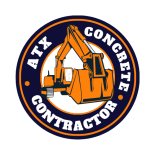The process of pouring concrete is a foundational step in construction, and while it forms the bedrock of a structure, it’s crucial to understand the cost factors associated with professional concrete pouring services. From the choice of materials to labor and expertise, various elements contribute to the overall cost of the pouring process. In this exploration, we delve into the key factors that influence the expenses involved in professional concrete pouring, shedding light on the nuances that builders and project planners must consider.
Concrete Mix Composition: Tailoring Strength to Requirements
One of the primary cost factors in professional concrete pouring services is the composition of the concrete mix. The choice of materials and their proportions significantly influences the cost of the project. Different projects require varying levels of strength, durability, and resilience from the concrete foundation.
For example, projects in areas with challenging soil conditions or those requiring high load-bearing capacity may necessitate the use of specialized concrete mixes with added reinforcement. This typically incurs higher material costs compared to standard mixes used for less demanding applications.
Moreover, the use of additives such as accelerators or retarders, which influence the setting time of the concrete, can impact costs. While accelerators might be required for projects with tight timelines, retarders could be essential for projects that demand extended workability.
Labor and Expertise: Skillful Craftsmanship Comes at a Price
The skilled labor involved in professional concrete pouring is a significant cost factor that contributes to the overall expenses of a project. Experienced professionals, including concrete workers, formwork installers, and finishers, play a crucial role in ensuring the precision and quality of the pouring process.
The expertise required extends beyond the pouring phase. Skilled workers are involved in the preparation of formwork, which serves as the mold for the concrete foundation. Properly aligned and secure formwork is essential for creating a foundation that meets structural requirements.
During the pouring phase, skilled workers monitor factors such as temperature and humidity, adjusting the process to ensure optimal conditions for the concrete to set and cure. The finishing touches, including smoothing and leveling the surface, require a level of craftsmanship that contributes to the overall quality of the foundation.
While skilled labor comes at a price, it is an investment in the precision and durability of the foundation. The expertise of professionals ensures that the concrete pouring process aligns with industry standards and best practices, reducing the risk of issues that could lead to costly repairs in the future.
In conclusion, understanding the cost factors in professional concrete pouring services involves a delicate balance between quality and budget considerations. The composition of the concrete mix tailored to project requirements and the skilled labor and expertise involved contribute to the overall cost. Builders and project planners must navigate these factors judiciously, recognizing that the investment in quality materials and craftsmanship during the pouring phase lays the groundwork for a durable and resilient structure. In the realm of concrete pouring, balancing profits requires a strategic approach that prioritizes both the immediate budget and the long-term integrity of the construction project.
